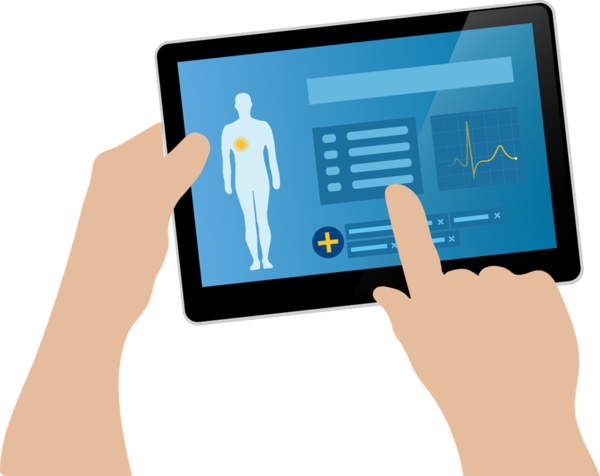Major university hospitals are increasingly using AI-powered medical voice recognition technologies.
Developers of healthcare AI solutions are speeding up the commercialization of their products in line with university hospitals’ push to make themselves smarter with digital healthcare solutions.

Whether voice recognition devices will improve efficiency in patient care and accuracy in reading medical test results draws attention.
In July, Hanyang University Medical Center’s Radiology Department and Nuclear Medicine Department started using Selvy MediVoice, an AI-backed medical voice recognition solution by Selvas AI.
Physicians at the two departments can use the program when reading X-ray, MRI, CT, and PET-CT scans.
The software recognizes the voice, converts speech into text, stores the medical records, and registers the data in the hospital information system automatically.
Selvas AI said Selvy MediVoice learned medical terms for each department and recognized 98 percent of the speech.
The company was the first in Korea to commercialize the medical AI voice recognition technology when it signed an agreement with the Severance Hospital to upgrade its ARP System and introduce the medical recording system in 2018.
Selvas AI said the voice recognition software would shorten the average medical recording time per doctor by 500 minutes monthly, compared to handwriting.
The National Cancer Center, Hallym University Dongtan Sacred Heart Hospital, Jeju National University Hospital, Chungnam National University Hospital, and Kangwon National University Hospital use Selvy MediVoice.
In April, Inha University Hospital launched Vuno’s AI-using voice recognition solution, VUNO Med-Deep ASR. VUNO Med-Deep ASR helps physicians document reading test results in real-time or convert the recorded speech into text.
Asan Medical Center’s Radiology Department also introduced VUNO’s solution in October.
The program is also available at the Ewha Womans University Mokdong Hospital, Ewha Womans University Seoul Hospital, Yongin Severance Hospital, Gachon University Gil Medical Center, Kyungpook National University Hospital, and Kangnam Sacred Heart Hospital.
Korea University Anam Hospital teamed up with Puzzle-AI to develop a “Voice electronic medical record (EMR)” technology.
Last month, the hospital said that it successfully developed a voice recognition model for seven departments – radiology, nuclear medicine, pathology, cardiology, dentistry, emergency medicine, and critical care surgery.
The hospital formed a Voice EMR Research Group, which collected 360,000 medical scripts and voice files for the past year.
Puzzle-AI jointly developed the Voice EMR technology with Seoul St. Mary’s Hospital and Eunpyeong St. Mary’s Hospital. The company is expanding the pilot project of Electronic Nursing Record with Eunpyeong St. Mary’s Hospital.
The success of AI-based medical voice recognition solutions is likely to hinge on each product’s technological excellence.
Korean clinicians often use both English and Korean medical terms, and each medical institution or department could use different terms.
So, the success of a voice recognition device will depend on whether it can accurately record different speeches.
“Selvy MediVoice learns each doctor’s pronunciation through deep learning, and the recognition rate improves when it is used more,” an official at Selvas AI said. “It recognizes sentences where Korean, English, numbers, and symbols are mixed accurately without typos.”
VUNO said its solution was developed based on its VUNO Net, the company’s deep learning engine, which is why its product had better voice recognition performance.
VUNO Med-Deep ASR can learn a large amount of data at a faster learning rate than general open source engines, according to the company.
As the program learns hundreds of thousands of local medical imaging data for thousands of hours, the company said it has no difficulty processing medical terms mixed in Korean and English.
Joo Kyung-don, general manager at Puzzle-AI, said the company built an AI-based model through collaboration with a medical institution. Adding each medical institution’s dataset will enable the company to develop a customized solution.
“This shows why our Voice EMR could be expanded to 11 departments from the initial three departments,” he said.

